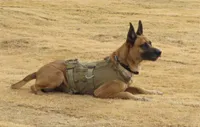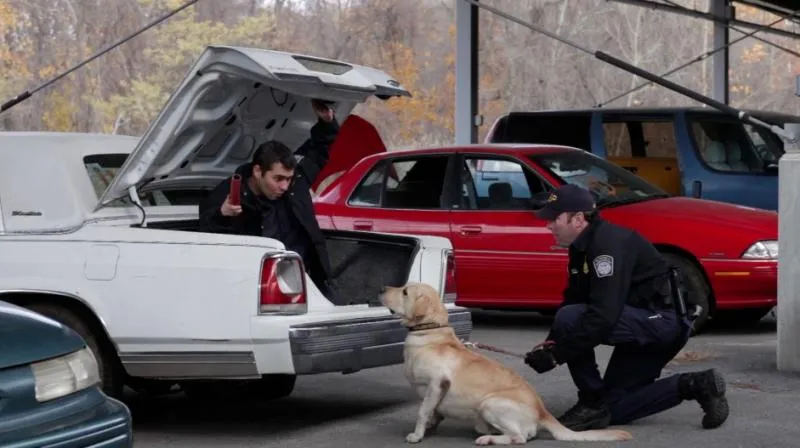
The CBP Canine Program is headquartered in El Paso, Texas and has two training delivery sites: Border Patrol Canine (BPK9) Academy in El Paso, Texas and Field Operations Canine (FOK9) Academy in Front Royal, Virginia.
The CBP Canine Program is critical to the mission of the Department of Homeland Security: "To Protect the Homeland." The primary goal of the CBP Canine Program is terrorist detection and apprehension. The working CBP canine team has become the best tool available to detect and apprehend persons attempting entry to organize, incite, and carry out acts of terrorism. The Canine Program's secondary goal is detection and seizure of controlled substances and other contraband, often used to finance terrorist and/or criminal drug trafficking organizations. Additionally, CBP canine teams assist local law enforcement agencies when requested. Under the direction of the Office of Training and Development (OTD), the CBP Canine Program offers certified training based upon numerous federal and internationally recognized standards. The CBP Canine Program provides formal training for various local, state, and federal agencies. As a resource center, the CBP Canine Program serves as a liaison to the field, providing guidance for training issues, legal requirements, and certification standards.

at the Field Operations Canine (FOK9) Academy Canine Training
Center
CBP maintains a breeding program to supplement the number of suitable dogs entering detection training for the CBP mission. Working and sporting breed dogs are whelped and cared for in a variety of approved housing facilities. The puppies' final evaluation takes place between 7 and 14 months of age when they enter into one of the formal detection canine courses.
The CBP Canine Program has the responsibility of training canine instructors, canine handlers, and canines to assist CBP in its mission. With more than 1,500 canine teams, the CBP Canine Program is the largest and most diverse law enforcement canine program in the country.
The CBP agriculture detector dog teams are trained at the USDA's National Detector Dog Training Center in Atlanta, Georgia and is a separate training program from the CBP Canine Program.

